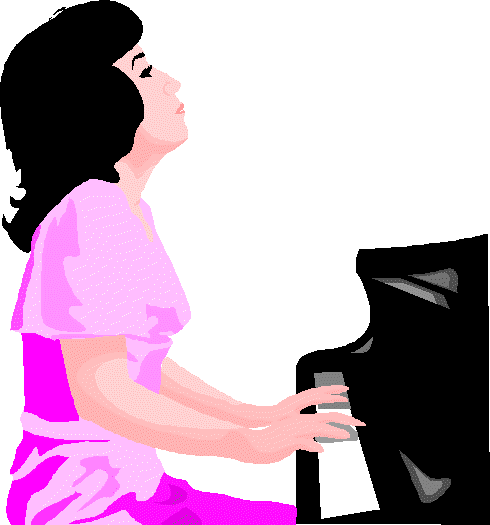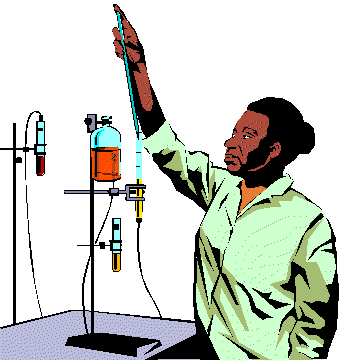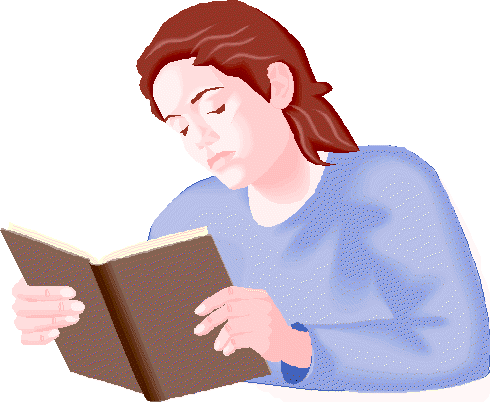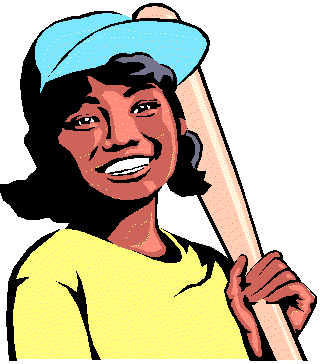|
|||||||||||
|
|
Dr.
Rimm Wecomes Your Questions and Comments
Parents, do you have questions about raising girls? Girls - do you have questions about education or social goals? Women - do you have questions about the career-home balance? Send your questions and comments to Dr. Rimm Dear Dr. Sylvia, Dear Dr. Sylvia, I was wondering how many of the "Janes" in your research for your book See Jane Win were initially identified as gifted? I would appreciate any recommended reading that you may have. SR: About 25 percent of the successful Janes were identified as gifted in elementary and middle school, and one third were in gifted programs in high school. Considering that the average age of these women was 44, and there were fewer gifted programs when they were growing up, that's quite a high percentage. Many women would have qualified if there were such programs at the time. Many of the women talked about the positive impact of those gifted programs. Astronaut Cady Coleman explained that the gifted program made her realize that it’s important to be intelligent and to learn because her school valued her abilities enough to provide especially challenging programs. Having two such different children in the family is truly a challenge. Helping each develop self-esteem and teaching them to appreciate each other are difficult goals that would challenge any parent. I know you love both your children and want to do the best you can to meet each of their needs so, hopefully, they will understand and appreciate the challenge their parents face and will feel secure and good about themselves. I would recommend my book How to Parent So Children Will Learn. Dear Dr. Rimm, SR: Men and women are different from each other, and indeed may process emotions differently, although they are far less different then once believed when it was thought that women couldn’t hold political office, be scientists or attorneys, or play in symphony orchestras. Some of us even remember a time when it was believed that although men could design washing machines, sell washing machines, and repair washing machines, somehow they simply couldn’t run them for the purpose of doing laundry! Men and women won't truly understand each other’s differences until there have been several generations of men and women learning about the full range of what they can be. A bad partner, either man or woman, can sabotage the other's power, causing the other to feel depressed or angry. There is, however, never an excuse for violence. No woman should take responsibility for an adult male's violence. Emotional processing may be different, but violence simply can't be accepted or blamed on others. A free See Jane Win newsletter is available upon request. Please provide your mailing address. Dear Dr. Rimm, How do I build self-esteem, hope, and confidence in a child that has been abandoned by almost everyone in her life and teach her about self-respect and courage? She also needs major help with her reading skills. SR: I want to thank you personally for trying to make a positive difference for this girl. Your most important contribution of your time and attention can make a difference but understand she has much to overcome so your expectations for her success may not be set as high as you’d like. Start with the girl’s reading skills. Ask her great grandmother for permission to contact her teacher who can suggest how you can support what the child’s already learning in school. The teacher will probably be able to arrange for the use of some books or workbooks that you can use together. Also take the girl to the library and help her select books that she may be able to read and that you can read to her. Try to meet with the girl at least once or several times a week to spend time together doing things. A trip to a museum, a hike in the park, a visit to a grocery store to buy some food, or attendance at a theater presentation can become your weekly enrichment opportunity for this girl as well as providing her with the opportunity to talk to someone she can respect who cares about her. Do everything you can to help the girl understand the American dream; that by education she can move to a better life. As you give her tastes of the way others live, show her the path of hard work in school to guide her. The potential for her future is great if she graduates from high school and goes on to a community college for some kind of career training,. Unfortunately, without that hope, it’s too easy for girls like her to mistake sex for love, and having children while they’re children for security. You’ll have accomplished much if you can show her both paths and how one leads to a better life while the other leads only to further poverty and insecurity, As a Big Sister that is much to ask of you, and it’s unfair to expect you’ll be able to do it all. Tell yourself it's worthwhile if the girl gets a few insights or has some experiences she values. She may not even appreciate what you’re doing for her at this time, but be assured she’ll never forget the one person, in addition to her great-grandmother, that stuck with her. Again, thank you for your commitment and Big Brothers/Big Sisters for their important work. A free See Jane Win newsletter is available upon request. Please provide your mailing address. Dear Dr. Rimm, I wonder if you widened your exploration to include girls and women who have significant disabling conditions or chronic health problems. Our daughter has both. It has been very challenging raising her, and there have been few substantial guideposts. I suppose it was just as well that I had to give so much thought to what to do and how to do it, but I would have welcomed something like your book with this added concern. Take "pressure to be pretty" and factor in scoliosis, bowed legs, AFO's, scars. . . well, you can imagine. My daughter's gifts were fortunate--solid verbal intelligence, National Merit Scholar, superior math ability, and, of course, all of this provides broader horizons for her future. I will admit to feelings of great gratification that our daughter is turning out so well, though much of this has to be attributed to her own personality and spirit. Yet, if girls need extraordinary support (and I believe they do) to develop to their fullest potential, how much more is needed if they're struggling with those serious challenges, which, no matter what, can't be overcome simply with hard work, good attitudes, and support. SR: Although I've not done a study of people with handicapping conditions, there were some women in our study who had such conditions and quite a few who struggled with serious temporary illnesses. Despite their problems, however, they found the courage and perseverance to succeed, and indeed, I do believe your daughter would find this book to be reinforcing and encouraging. A free See Jane Win newsletter is available upon request. Please provide your mailing address. Dear Dr. Rimm,I have two girls, ages eleven and fourteen. My fourteen-year-old has a very petite build, is not very tall, and right now wants nothing more than to fit in at school. I know these feelings are normal, but what bothers me somewhat is that during her pre-teen years she was very independent in terms of looking the way she wanted to look vs. following the trend. How can I help her to feel free to follow the beat of her own drum once again? She is experiencing all the normal problems of this age, i.e., lack of self-confidence. My eleven-year-old has problems of her own. She is going to be much taller than her sister, but along with that she has a stockier build. I have a petite build and my son also has a small frame. My husband is over six feet tall and has a large, stocky build. Sometimes she'll ask me why she is the only one of the kids that is built the way she is. I've tried to accentuate the positive in terms of her height, but she doesn't want to be tall. Going clothes shopping can be very hard for her because they don't make clothes for kids her size. She isn't that big;, she just isn't skinny. I'd appreciate any words of wisdom you might offer that might help me help them. SR: In my See Jane Win research, I found that most of the successful women went through some struggles in their "tween" or teen years. Many felt too short, too tall, too fat, or too thin. It's a time to be less sympathetic to your daughters about what they're not and more assertive about reminding them what they are and can be. It's a time to explain that relationships based on appearance may be fun for a while, but dissipate quickly because they're not true friendships. Your daughters need to find friends who share their interests and values and not go along with the crowd. If your daughters feel a little lonely, encourage them to become involved in learning, volunteering, sports, music, or art, and to develop their intelligence, skills, and personality. That is how one develops self-esteem. It happens in small steps as teens discover their own growth, progress, and independence. Suggest to your older daughter that a few good friends are better than many who may be insincere, and that the whole popularity craze disappears after high school. Too many girls lose out during their teen years. Your daughters' continued involvement will help them through these years and strengthen them for independence just as the women in See Jane Win often developed their own strengths in spite of feeling different. A free See Jane Win newsletter is available upon request. Please provide your mailing address. Dear Dr. Rimm, Mike Wilder, Lt. Colonel, USAF (retired), Stone Mountain, GA Dear Dr. Rimm, It has been a most rewarding read and is helping me to think through my long-term future and goals in a way I have not done before. It's also encouraging me to investigate my past--my schooling, university years, and early career years--with a far more critical awareness. I am enormously appreciative of your research work and your resulting book, which has opened my mind and given me lots to think about. Kerry van der Riet, South Africa Dear Dr. Rimm, Joan Smutny, Wilmette, IL SR: Thanks for your wonderful support. Dear Dr. Rimm, SR: In the See Jane Win study, we selected a range of careers to focus on, eight that were not traditional for women and four that were. We advertised in professional newsletters and newspapers throughout the country for women who considered themselves successful and reasonably happy in their careers as well as their family and social relationships. It was a self-assessment rather than using any scale, which seemed to be the best way for assessing success for the purpose of a book intended to give advice to parents on raising their daughters. Dear Dr. Rimm, Cathy Nicholls, Totem Council, Seattle WA SR: As a former Girl Scout leader, I know what Girl Scouting means to girls. I was very impressed that the women in our research corroborated the positive experiences of Girl Scouts. I would love to speak to Girl Scouts and their parents and inspire them to great heights.
©2000 by Sylvia Rimm. All rights reserved. This publication, or parts thereof, may not be reproduced in any form without written permission of the author. Check out Dr. Rimm's other web site at www.sylviarimm.com |
||||||||||
© 2000 by Sylvia B. Rimm. All rights
reserved. This web site
designed by Joanne Riedl for Sylvia Rimm |
|||||||||||







